Written by: Humane Pennsylvania CEO & President, Karel Minor
“Without people, you’re nothing.” This quote by the late, great Joe Strummer hangs on the wall of Humane PA’s conference room along with our Mission Statement. It’s a reminder that while Humane Pennsylvania exists to help animals in need, we can only do that through people’s assistance, partnership, and support. It’s also a reason for concern on the horizon and why this year’s review will look back a little further than usual.
Not too long ago, the universal sentiment- and it’s still all too common today- is that people were the primary problem facing animals. Animal welfare was suspicious, barrier erecting, and often openly hostile toward the public. Adopters were mercilessly grilled, those asking for help were judged by inconsistent and arbitrary standards, and facts and data had no place in a world that ran on feelings and personal opinions. It was a good place for people to engage, but it certainly wasn’t a good place for animals.
Thankfully, this has started to change to benefit animals and those who want to help them. Humane PA has been a leader in promoting a model of services that views people as the solution to the problems facing animals. While that doesn’t seem radical now, this approach was highly controversial and actively opposed in the recent past. The most vitriolic opposition came from the animal welfare community itself.
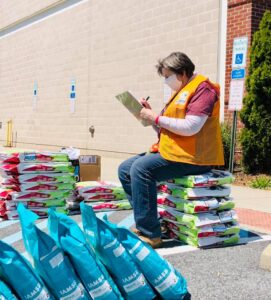
When Humane PA created Ani-Meals on Wheels (now Spike’s Pet Pantry), one of the nation’s first pet food support programs, we received hate mail from other animal shelters for giving away food to people whom they felt shouldn’t have pets because they couldn’t afford them. Today, pet food pantries are ubiquitous and serve millions of people in need trying to provide for their pets during challenging economic times.
When Humane PA created PetNet, our emergency foster program that provided temporary housing for those fleeing domestic violence or facing medical or other personal crises, we had pushback from within our own staff. They questioned why we would take space from “real” homeless pets for people who should work out their issues or give up their pets. Today, relinquishment prevention foster programs are standard practice in animal welfare.
When Humane PA created the “Free to a Great Home” fee-waived adoption program, the very first formal, public program of its kind in the country, it was widely derided…again, especially within the animal welfare community, as being dangerous for animals. Wouldn’t people who didn’t pay for them mistreat or neglect them? Spoiler alert: No. The data never supported that belief. In fact, the most dangerous place in America for an animal to be was an animal shelter. Fee-waived adoptions saved lives, reduced euthanasia, and had successful placement rates as good or better than fee-based adoptions. Fee-waived adoption events are also now ubiquitous and standard practice within animal welfare.
When Humane PA opened the first full-service non-profit veterinary practice in Pennsylvania (back when you could count all such practices in the nation on two hands and two feet), we were threatened with lawsuits and legislation by the organizations representing the veterinary community. Fortunately, they came to see the error- and pointlessness- in these anti-competitive and anti-pet caretaker ways, and we’ve mended fences. We are now one of the largest veterinary practices in the region, we are nationally accredited, and the number of non-profit veterinary practices is exploding nationwide.
I’m taking this time to look backward, not just to brag about how Humane PA has been a leader in all these areas. OK, maybe a little. But these are reminders that time and again, Humane PA has chosen paths that were only sometimes easy or popular because they were the best choices to help animals. While we may have recognized that these were the right roads to take, we could only walk them because we had people’s steadfast support. A board of directors empowering staff to break new ground, donors willing to support the work financially, and volunteers standing shoulder to shoulder with staff to do the job. Without these people, these efforts could have amounted to nothing. With their help, scrappy little Humane PA (once scrappy little Humane Society of Berks County) became a national leader in animal welfare and helped redefine how organizations nationwide help animals.
I know that’s a bold claim, but a real one, particularly in non-profit veterinary services. When we started our practice nearly twenty years ago, it was a unicorn. No longer. In October, Humane Pennsylvania staff was asked to present and moderate three workshops and panels at the first national Access to Veterinary Care (AVC) Conference. Hosted by the University of Minneapolis Veterinary School and ASPCA, hundreds of attendees represented hundreds of existing non-profit vet practices of every shape and size and came together to share and learn. HPA was recognized as one of the oldest and most comprehensive veterinary programs and is still on the cutting edge of program development.
I was incredibly proud of the animal welfare community that has come around to seeing that access to vet care is one of the most effective ways to improve the lives of animals. I was also very proud of our staff for leading the way to help define and create this new approach. Before HSUS’ Pets For Life existed or big national foundations and organizations provided a penny of funding for access to vet care efforts, before there was enough critical mass to inspire a national conference on AVC work, Humane PA was doing the work, promoting the approach, and giving AVC workshops at any conference or meeting that would have us.
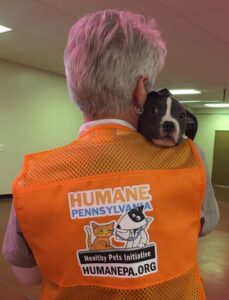
These efforts, particularly in combination with spay/neuter efforts and the change in expectations commonly summed up as the “no-kill” philosophy, have resulted in 90% fewer animals euthanized in shelters than in 1970. The outcomes are even better in some areas of the US and Berks and Lancaster Counties. Since 2005, shelter euthanasia at our Berks and Lancaster shelters has declined by 98%- 10,000 animals a year. During the same period, HPA shelters had an 82% decrease in intake, thanks to improved relinquishment prevention services, access to pre-emptive services, and changes in the community’s expectations.
Shelters in our region and across the country now face routine periods of having too few animals available for adoption to meet the need! Humane Pennsylvania and many other organizations are focusing more resources on access to veterinary care and social service supports than on shelter programs. Some organizations are even considering divesting themselves of their shelter divisions entirely to focus on more cost-effective and broadly impactful programs like veterinary services.
And this is where I finally bring it back to my concern and how it informs our work in the new year. All these great programs and services have profoundly impacted positive incomes for animals and do so more affordably and sustainably for animal welfare organizations. Humane Pennsylvania has been redirecting our resources to address the increasing needs of pet caretakers asking for something other than a shelter to surrender an animal. Giving up a pet to an animal shelter should never have been the first, only, and easiest option for a caretaker in need. And that’s precisely what it was- what animal shelters made it– for nearly 100 years. However, there will always be a need for a safe haven for temporarily or permanently homeless pets. There will be a need for a place where people can bring a pet when they are genuinely at the end of the capacity or ability to keep it. We cannot throw shelters on the scrap heap of other harmful and counterproductive programs or beliefs (remember when you couldn’t adopt black cats at Halloween because…Satanists?) just because it’s less fun, more expensive, and has a more negligible impact than all our new-fangled access to vet care work.
However, sheltering needs to be put in the proper context of need, resources, and effectiveness, combined with supportive programs. Our goal should be to keep every pet at home, using every tool in the kit, but access to a shelter when all else fails has to be an option.
That’s why two years ago, we opened a two million dollar investment in sheltering, the Freedom Center for Animal Life-Saving, which featured dramatically improved animal and adoption space. But it also houses expanded veterinary services for sheltered animals and is
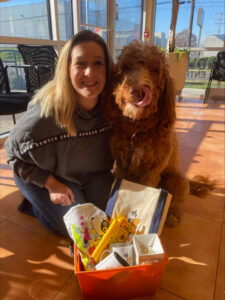 the first non-profit walk-in animal clinic in the region. The Healthy Pets Walk-In Clinic, which opened in May of 2022, provides vital vaccination and wellness care at 40% off standard veterinary costs, making it more accessible to those with limited economic resources. It recently treated its 1,000th client.
the first non-profit walk-in animal clinic in the region. The Healthy Pets Walk-In Clinic, which opened in May of 2022, provides vital vaccination and wellness care at 40% off standard veterinary costs, making it more accessible to those with limited economic resources. It recently treated its 1,000th client.
Last year HPA expanded its Healthy Pets Initiative Pay-What-You-Can vaccine and microchip clinics to the veterinary desert of Lancaster City. Although it required a significant scaling back of our general practice hours at the HVH Lancaster hospital due to the ongoing national veterinary shortage, we knew it was the right way to get the most needed help to the most pets cared for by the population with the highest need. Also, if you are a veterinarian looking to work someplace that is changing the world, call me!

Next year, we will be doing even more. In 2023, Humane PA will open a Community Resource Center in Lancaster to mirror the work done by our Reading Community Resource Center. Pet food pantry, affordable spay/neuter, pay-what-you-can vaccines, caretaker support services, and emergency response will be coming to Lancaster to neighborhoods and pets who need it the most and have the least access. And both CRCs may even be getting small cat adoption centers to help us get more pets into great homes. It’s a very different approach to animal welfare. We will be sharing more details very soon.
This will be a significant investment for us and is a long-term commitment to the communities we serve. It’s also a statement: Animal welfare works best when shelter, support, and veterinary programs work together.
Like many of our initiatives, this effort is the culmination of time, thought, and work. And, like all our initiatives, we can only do it with help. The help of our staff, volunteers, and donors. People like you. Cats can’t adopt themselves. Dogs can’t give themselves
 vaccinations. Guinea pigs can’t help us pay for our work. All those things require people. And without people, we’re nothing.
vaccinations. Guinea pigs can’t help us pay for our work. All those things require people. And without people, we’re nothing.
All of us at Humane Pennsylvania share our gratitude and appreciation. We hope you have a safe, happy, and healthy New Year. And we hope you’ll continue to be here for us and with us as we begin a new chapter for HPA and animal welfare.
 Rabbits have been in our lives since the 5th century, when these adorable creatures won the hearts of humans and were domesticated to be pets. Did you know rabbits are currently the second-most popular pet, after goldfish? And according to insider.com*, other than cats and dogs, rabbits are one of the most popular pets in the U.S. — second only to goldfish. It’s no wonder these critters get a whole month dedicated to finding their forever homes.
Rabbits have been in our lives since the 5th century, when these adorable creatures won the hearts of humans and were domesticated to be pets. Did you know rabbits are currently the second-most popular pet, after goldfish? And according to insider.com*, other than cats and dogs, rabbits are one of the most popular pets in the U.S. — second only to goldfish. It’s no wonder these critters get a whole month dedicated to finding their forever homes. climb onto or dig in — all are AMAZING in the eyes of a bun. You can teach them anything you can teach a dog: sit, stay, jumping through hoops, jump up, etc. There’s simply no end to what you can fill their little heads with.
climb onto or dig in — all are AMAZING in the eyes of a bun. You can teach them anything you can teach a dog: sit, stay, jumping through hoops, jump up, etc. There’s simply no end to what you can fill their little heads with. You do have to keep in mind, however, that owning a rabbit (just like any other pet) isn’t always all fun and games. You need to be prepared for the inevitable vet bills, and establishing a relationship with an exotics vet will ease some of your worries if an emergency should one day occur.
You do have to keep in mind, however, that owning a rabbit (just like any other pet) isn’t always all fun and games. You need to be prepared for the inevitable vet bills, and establishing a relationship with an exotics vet will ease some of your worries if an emergency should one day occur.



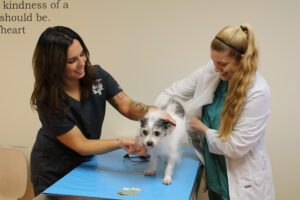



 the first non-profit walk-in animal clinic in the region. The
the first non-profit walk-in animal clinic in the region. The 
 vaccinations. Guinea pigs can’t help us pay for our work. All those things require people. And without people, we’re nothing.
vaccinations. Guinea pigs can’t help us pay for our work. All those things require people. And without people, we’re nothing. without an appointment — and it’s designed to serve more community members at an affordable price point of only 60% of normal veterinary hospital rates.
without an appointment — and it’s designed to serve more community members at an affordable price point of only 60% of normal veterinary hospital rates. There are many ways to celebrate this lovable tabby, especially in a world full of cat (and animal!) lovers. For me, an owner of three orange tabby cats, this fun holiday is very relatable. While my orange kitties don’t necessarily have a strong love of lasagna or coffee, they have wonderful, silly personalities and love to lay in the sun, much like Garfield.
There are many ways to celebrate this lovable tabby, especially in a world full of cat (and animal!) lovers. For me, an owner of three orange tabby cats, this fun holiday is very relatable. While my orange kitties don’t necessarily have a strong love of lasagna or coffee, they have wonderful, silly personalities and love to lay in the sun, much like Garfield. extremely outgoing and greets everyone as soon as they walk in the door. He will also “talk” to you and chirp the answers to any questions you ask him. He loves to be petted and will cuddle right up any lap or bed pillow (at night) that’s available.
extremely outgoing and greets everyone as soon as they walk in the door. He will also “talk” to you and chirp the answers to any questions you ask him. He loves to be petted and will cuddle right up any lap or bed pillow (at night) that’s available. April 2019. At this point, I knew my love for orange tabby cats was strong. So as soon as I saw him in his cage, rolling around and reaching for me on the other side of the glass, it was game over. He fits in with his brothers very well, and he has such a charming personality. He purrs loudly, loves hard, and craves human affection.
April 2019. At this point, I knew my love for orange tabby cats was strong. So as soon as I saw him in his cage, rolling around and reaching for me on the other side of the glass, it was game over. He fits in with his brothers very well, and he has such a charming personality. He purrs loudly, loves hard, and craves human affection. “My best friend arrived at the Humane League of Lancaster in April 2017. He was a smelly, filthy, hot mess of a cat with a laundry list of medical issues and a heartbreaking past.
“My best friend arrived at the Humane League of Lancaster in April 2017. He was a smelly, filthy, hot mess of a cat with a laundry list of medical issues and a heartbreaking past. easily with the rest of my crew, it was like he had been with us forever.
easily with the rest of my crew, it was like he had been with us forever. During the day, Henry can often be found curled up in his igloo bed, cuddling with his best friend Chester, or chasing around things that make a crinkle noise. Henry’s newest BFF is our foster-to-adopt rabbit. He loves to spend time in her room, and she gets so delighted when he visits her!
During the day, Henry can often be found curled up in his igloo bed, cuddling with his best friend Chester, or chasing around things that make a crinkle noise. Henry’s newest BFF is our foster-to-adopt rabbit. He loves to spend time in her room, and she gets so delighted when he visits her!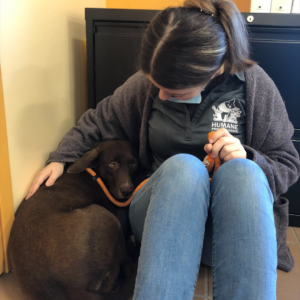 My plan was to spend all my extra time trying to make her comfortable with me and gain her trust. This started with us standing on opposite sides of the kennel — and lots of treats. She slowly became comfortable enough to eat them, but only if I was not looking directly at her.
My plan was to spend all my extra time trying to make her comfortable with me and gain her trust. This started with us standing on opposite sides of the kennel — and lots of treats. She slowly became comfortable enough to eat them, but only if I was not looking directly at her.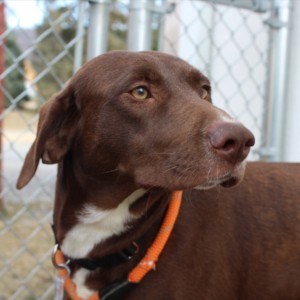 giving Gracie treats and calmly talking to her to coax her out of her shell, and she eventually gave in to their kind attempts.
giving Gracie treats and calmly talking to her to coax her out of her shell, and she eventually gave in to their kind attempts.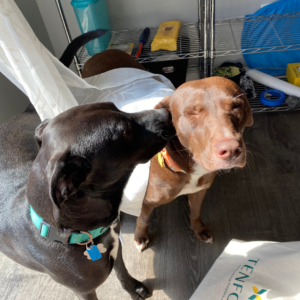 “When we got Gracie, she was incredibly shut down and would run away from us and hide any chance she got. She no longer hides and is often found roaming around, exploring the house while wagging her tail. Even more frequently, she can be found sitting on top of anyone who is willing to give her her favorite neck rubs. She has started giving us face kisses and smiles when she gets to run around outside. She’s such a good dog, and I’m so glad that you all believed in her and in us.” – Bryan and Alicia (Gracie’s adopters)
“When we got Gracie, she was incredibly shut down and would run away from us and hide any chance she got. She no longer hides and is often found roaming around, exploring the house while wagging her tail. Even more frequently, she can be found sitting on top of anyone who is willing to give her her favorite neck rubs. She has started giving us face kisses and smiles when she gets to run around outside. She’s such a good dog, and I’m so glad that you all believed in her and in us.” – Bryan and Alicia (Gracie’s adopters)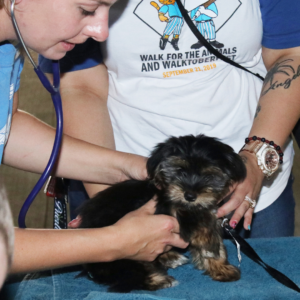 owners happen because the pets are microchipped and registered with up-to-date contact information.
owners happen because the pets are microchipped and registered with up-to-date contact information. Each microchip has a unique number, an ID number of sorts, that needs to be registered with the pet owner’s name, address, and phone number. It is important to ensure a chip is registered and information is kept up to date.
Each microchip has a unique number, an ID number of sorts, that needs to be registered with the pet owner’s name, address, and phone number. It is important to ensure a chip is registered and information is kept up to date.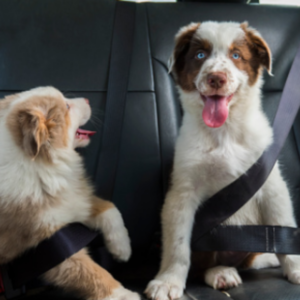 In our area of Pennsylvania, we don’t have to worry too much about natural disasters like hurricanes and tornadoes. However, severe weather here can easily lead to flooding. And no matter where you live, you can be affected by a local water main break or power outages due to high winds and ice storms.
In our area of Pennsylvania, we don’t have to worry too much about natural disasters like hurricanes and tornadoes. However, severe weather here can easily lead to flooding. And no matter where you live, you can be affected by a local water main break or power outages due to high winds and ice storms.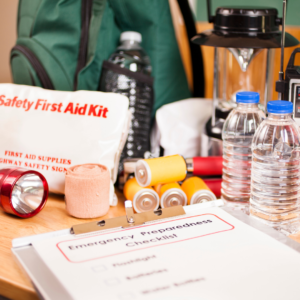 leashes, and/or harnesses, and a favorite toy/scent article. Pack a duplicate bag to keep in the car if you travel often with your pet, and be sure to rotate medications so they stay fresh.
leashes, and/or harnesses, and a favorite toy/scent article. Pack a duplicate bag to keep in the car if you travel often with your pet, and be sure to rotate medications so they stay fresh.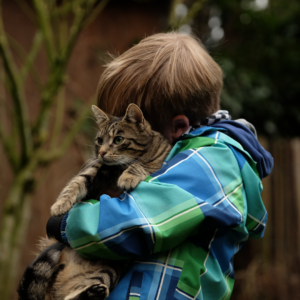 Humane Pennsylvania is home to the Berks County Animal Response Team (CART), which works directly with the Pennsylvania State Animal Response Team (PSART) and serves as the primary Eastern Pennsylvania large-scale emergency distribution resource for pet food and supplies. We are gearing up to deploy emergency supplies for up to 1,500 animals.
Humane Pennsylvania is home to the Berks County Animal Response Team (CART), which works directly with the Pennsylvania State Animal Response Team (PSART) and serves as the primary Eastern Pennsylvania large-scale emergency distribution resource for pet food and supplies. We are gearing up to deploy emergency supplies for up to 1,500 animals. Peaches, a five-year-old spayed female pug, was surrendered to the Freedom Center for Animal Life-Saving last week after a construction worker found her onsite, wrapped in a blanket outside with small bowls of food and water. The worker brought Peaches to the Freedom Center in Berks County, where she was immediately taken in and cared for – the shelter staff made sure to check for a microchip right away as part of the surrender protocol.
Peaches, a five-year-old spayed female pug, was surrendered to the Freedom Center for Animal Life-Saving last week after a construction worker found her onsite, wrapped in a blanket outside with small bowls of food and water. The worker brought Peaches to the Freedom Center in Berks County, where she was immediately taken in and cared for – the shelter staff made sure to check for a microchip right away as part of the surrender protocol. challenges with her current living arrangements, she made peace knowing that Peaches was doing well and was in safe hands at the Freedom Center. Although Peaches and her owner didn’t head back home together, the closure made possible because of that microchip is why it’s so important. Think of that scene in Cast Away when the wife realizes the husband she thought she lost forever had survived the plane crash and was, in fact, alive. While life’s circumstances couldn’t allow them to be together, both found peace in knowing that the love they shared was real and they no longer had to wonder.
challenges with her current living arrangements, she made peace knowing that Peaches was doing well and was in safe hands at the Freedom Center. Although Peaches and her owner didn’t head back home together, the closure made possible because of that microchip is why it’s so important. Think of that scene in Cast Away when the wife realizes the husband she thought she lost forever had survived the plane crash and was, in fact, alive. While life’s circumstances couldn’t allow them to be together, both found peace in knowing that the love they shared was real and they no longer had to wonder.